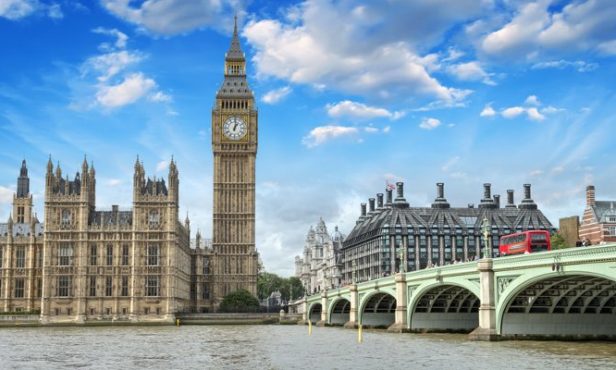There has been much speculation around the upcoming Budget, which Old Mill predicts will include extensions to furlough and the stamp duty holiday.

There has been much market speculation around the contents of Chancellor Rishi Sunak's Spring Budget on 3 March, which Old Mill predicts will include extensions to furlough and the stamp duty holiday, among other things.
In his speech to the House of Commons outlining a roadmap out of lockdown for the UK, Prime Minister Boris Johnson stated that the government would not "pull the rug out" when it came to financial support during the pandemic; however, he did not provide further detail, instead suggesting that information would be given by the Chancellor.
Discussing the potential items within the Budget announcement, Chris Bowles, director at Old Mill, said: “One area that absolutely needs some clarification is what the Treasury plans to do around extending government support for both businesses and workers.
"The Prime Minister has already provided his Chancellor with a platform by stating that his government is committed “not to pull the rug out” from people relying on support packages.
“The Office for National Statistics [ONS] has just revealed a marked drop in the number of self-employed people in the UK, so it’s essential the government beefs up its support in this area, particularly for freelancers."
He added: “The third Self-Employed Income Support Scheme (SEISS) grant ran from November 2020 to the end of January, so we are also anticipating news on the fourth SEISS grant, which may now plug the gaps by including those recently self-employed individuals excluded from previous grants.
"Sunak also appears to have a ‘blind spot’ (maybe deliberately) in terms of helping the directors of limited companies who will need to play an important role in driving the nation’s future growth in the recovery phase…so perhaps now is the time the bring them in from the cold?”
Speculation has also arisen throughout the end of 2020 and the start of 2021, as to when the government might start to bring in tax measures to recoup the deficit caused by these support measures, and whether it will wait until the country is safely out of crisis, or start trying to build back reserves now that the end is in sight.
Bowles said: “We’ve learned this week that unemployment has risen to its highest level for five years which places increasing pressure on the government to extend the furlough support period well beyond the recovery roadmap that’s been laid out.
“Cash reserves are running low for many businesses, and it’s crucial that the government doesn’t abandon them at this most critical juncture.
"Clearly, the prospect of redundancy is still a real threat for many workers so, in order to protect jobs, the Chancellor has a delicate balancing act to perform in order to keep these firms going.
"With loan guarantees, the business rates holiday and the furlough scheme all coming to an end, he must provide certainty to beleaguered business owners.
“Finally, many in the housing sector are calling for the six-month stamp duty holiday to be extended beyond its current 31 March expiry date - and it has already been reported that the chancellor is to extend the freeze for another three months - so we could see something around Stamp Duty Land Tax (“SDLT”) to help get the large volume of property-related transaction in the pipeline over the line.”
For much of Q4 2020 and Q1 2021 so far, commentators have been raising the issue of projected increases to Capital Gains Tax (CGT); the Office of Tax Simplification has also recommended that CGT rates be equalised with income tax rates.
Mark Neath, head of corporate finance at Old Mill, said “There has been much speculation surrounding a potential increase to Capital Gains Tax and in common with other professionals, we are seeing many transactions with pressure from sellers to complete transactions before the Budget.
“Looking back at history, we have seen similar situations previously. Over the past two decades, Retirement Relief gave way to Business Assets Taper Relief, which in turn was replaced by Entrepreneurs’ Relief and latterly, this was modified to Business Asset Disposal Relief.
“Each time these changes were made to the Capital Gains Tax system, there was a rush to complete deals before the new rules were introduced, just as we are seeing now.
"The one common factor in all of those previous changes to Capital Gains Tax has been that some special provision has always been made for people selling their businesses.
"Whilst we have no way of predicting what the Budget may hold, it would be a surprise to see a complete withdrawal of reliefs for business owners, albeit that it may take a different form.”
Last year, Johnson unveiled his 10-point plan to tackle climate change, deliver net zero and launch a ‘green industrial revolution’ which aims to phase out all petrol/diesel/hybrid cars by 2030; this suggests that there will be a strong ‘green undercurrent’ in the budget.
Jolyon Stonehouse, head of owner managed businesses at Old Mill, said: “With COP26 set to be hosted by the UK in November, don’t be surprised if there’s a strong environmental flavour contained in Mr Sunak’s budget speech next week.
"So, we may see something around R&D aimed at supporting electric vehicle manufacturing, especially if he can link it with the levelling-up agenda.
“Innovation is crucial to our recovery as we rebuild so it makes sense for the government to encourage businesses to push boundaries by harnessing their R&D capabilities through a variety of government-backed tax incentives.
"There have also been calls for the Bank of England to work with the Treasury in funding a National Infrastructure Bank investing in sustainable industries so we may start to see something emerge in this area.”



